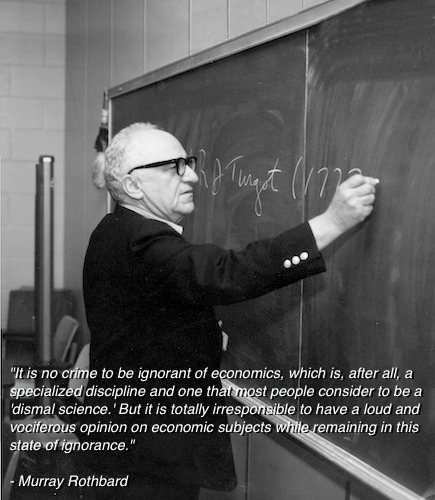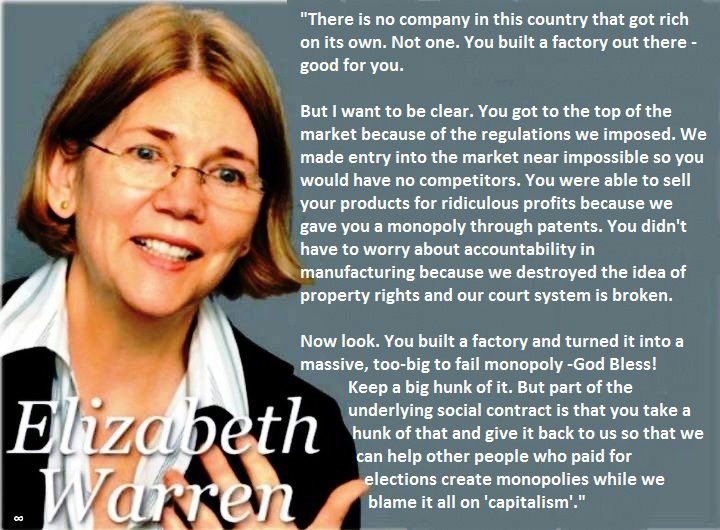They say a sign of insanity is doing the same thing over and over again while expecting different results. By that definition many of today’s so-called economists are insane:
Inflation occurs when there is too much money chasing too few goods. Deflation occurs when there is not enough money. For years, inflation alarmists have been forecasting runaway prices as a result of the Fed’s efforts to expand the money supply. But prices have remained stable, with the Consumer Price Index down last month and up just 1.7 percent in the past year.
There is so much wrong with this paragraph that I’m not entirely sure where to begin. First of all the Consumer Price Index (CPI), which is used to “measure” inflation, is crap:
The first thing to keep in mind is that the CPI is not an economic variable. It is a statistic that at best gives an inaccurate picture of an economic phenomenon: inflation. To calculate the monthly CPI, the USDepartment of Labor takes a weighted average of prices of various things that consumers purchase, and then its statisticians try to figure out the various proportions of different items in a “mythical” household budget. For example, the statisticians may hold that housing costs are 30 percent of household expenditures, food costs 20 percent, gasoline another 15 percent, and so on.
Armed with the proportional spending of the “average” household, the statisticians then assign that percentage to price changes of each item. Obviously, the higher the percentage of a household budget for a certain item, the more “influential” that item may be. For example, if gasoline prices rise sharply, then those particular price increases are seen as “fueling inflation” (no pun intended).
CPI isn’t some kind of fixed economic variable, it’s a statistic. Statistics is the best mechanism available to lie through numbers. A practically infinite number of variable can be manipulated to get the result you want. Do you want to make it appear as though the rate of inflation is minor? Simply give less weight to items that are increasing in price such as gasoline and food. Do you want to make it appear as though the rate of inflation is actually negative? Give more weight to items that exist in a mostly free market, such as electronics, since their prices generally trend down overtime. Do you want to show a massive increase in the rate of inflation? Give the more weight to food and gasoline.
Let’s talk about inflation. According to the article author, inflation means there is too much money in circulation. That’s not an accurate definition:
As economists and others of the Austrian School understand, inflation occurs when the value of money declines relative to the goods and services it can purchase. In other words, inflation is a monetary phenomenon, not a price phenomenon. Prices go up because inflation is happening, not the other way around.
Putting more money into circulation causes the value of that money to decline because it is less scarce. That value can also be affected by other things. What would happen if the oil producing nations in the Middle East decided they no longer valued American dollars and demanded all payments for oil be made in gold? We would see the value of the dollar plumet while the value of gold would jump.
The third point I want to address is the claim by the author that, according to CPI, inflation was up by just 1.7 percent. If, as the author claims, inflation is caused by too much money entering the market then any inflation rate above 0 would indicate the money supply must be retracted.
His remark about the low rate of inflation combined with his remark about inflation being caused by too much money in circulation also means he has admitted, indirectly, that he wants to rob holders of dollars. He admitted that inflation is the result of too much money in circulation, he admits that there is inflation meaning that there must be too much money in circulation now, and he wants the Federal Reserve to inject more money into the system. Since there is already too much money in the system a further increase in the money supply can only result in more inflation, meaning that current holders of dollars will be able to purchase less. By the author’s own statement he is advocating the state steal purchasing power from people who current hold dollars.
The author then moves on to use another set of numbers of prove his claim:
Don’t believe the official numbers? The Billion Prices Project at MIT says that lately inflation is actually lower than the government estimates.
That’s interesting, because last year the Billion Prices Project showed that inflation was higher than CPI:
The price of everything seems to have skyrocketed. Only housing, the dollar, and inflation-adjusted income are negative. World food and commodity prices are up 28 percent over the last 6 months. The MIT “Billion Prices Project” confirms that prices have been surging higher than indicated by the consumer price index. Entrepreneurs tell me that big price increases are already planned for everything from vegetables to blue jeans.
In fact, if you look at the data, the correlation between MIT’s Billion Prices Project and CPI is nonexistent. Often the rate of inflation according to the Billion Prices Project is higher than CPI and often the rate of inflation according to CPI is higher than Billion Prices Project.
Regardless of that fact the author still admits that according to the Billion Prices Project there is still inflation, which indicates that there is too much money chasing too few goods and services already.
The stupid doesn’t stop there:
The commodity price index is down 7 percent from a year ago. Home sales have been tepid despite mortgage rates lower than anyone could ever have dreamed.
Funny thing about home sales, there was a recent crash caused by a Federal Reserve created bubble. Home sales were through the roof a short while ago, before everybody started losing those houses. On top of that actual unemployed is hover over 20 percent so nobody could afford a new home even if you inject a few trillion more dollars into the economy. More money in circulation doesn’t help those who don’t have jobs to acquire that money.
The central banks have performed three rounds of quantitative easing (basically printing money) already and we’re still in a rut. How is printing more money going to magically cure our economic woes? If printing money fixed economic problems then the Weimar Republic should have been the epitome of economic health when it decided to try printing its way out of debt. Instead they experience hyperinflation, their economy tanked even harder, and the Nazi Party was able to sieze control of Germany.
Every nation that has attempted to print its way out of debt has experienced nothing by hardship. Printing money doesn’t work, it can’t work. When you hear somebody say the problem with our economy is the fact that there isn’t enough money in circulation just walk away because you’re dealing with an individual that has no understanding of economics.

